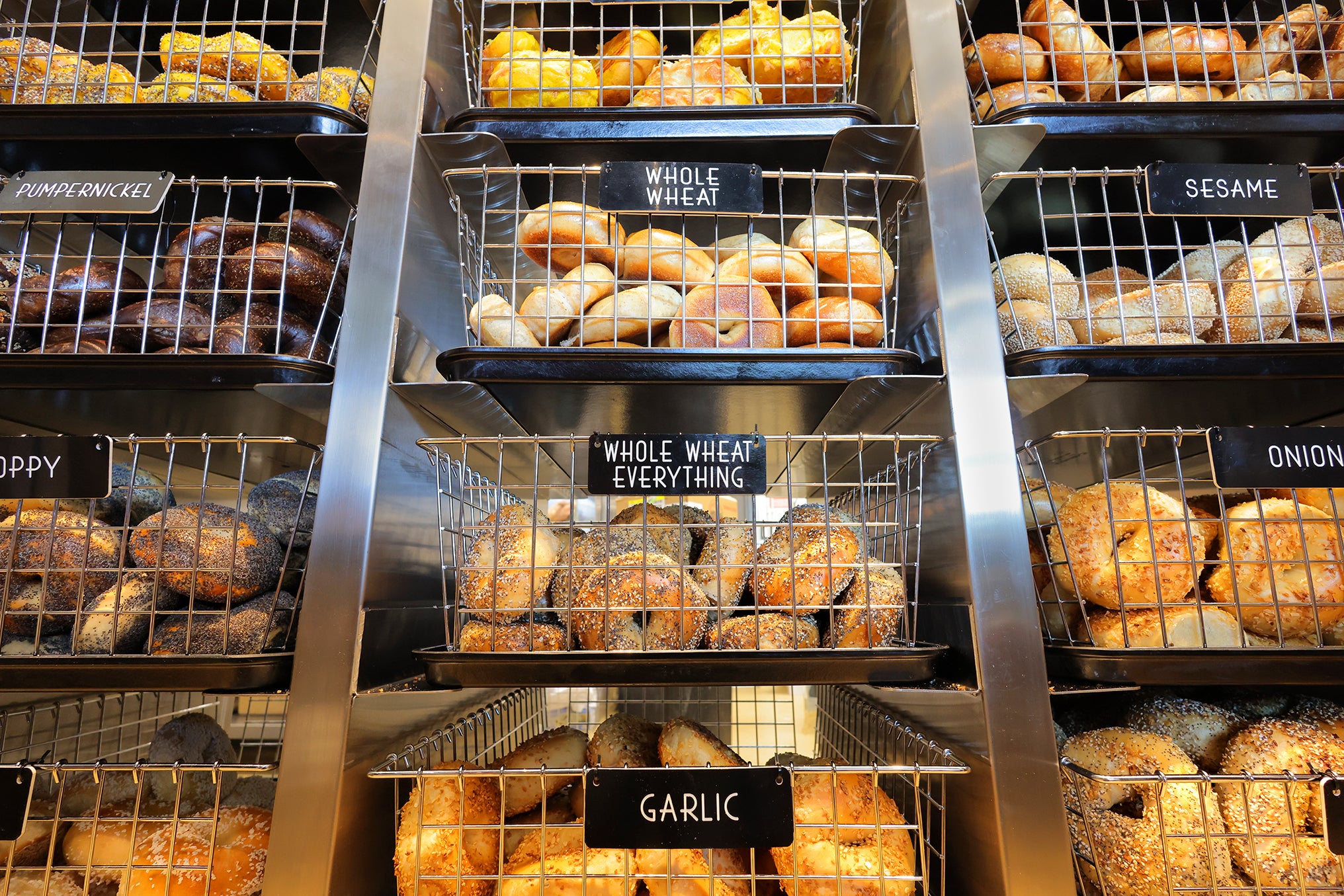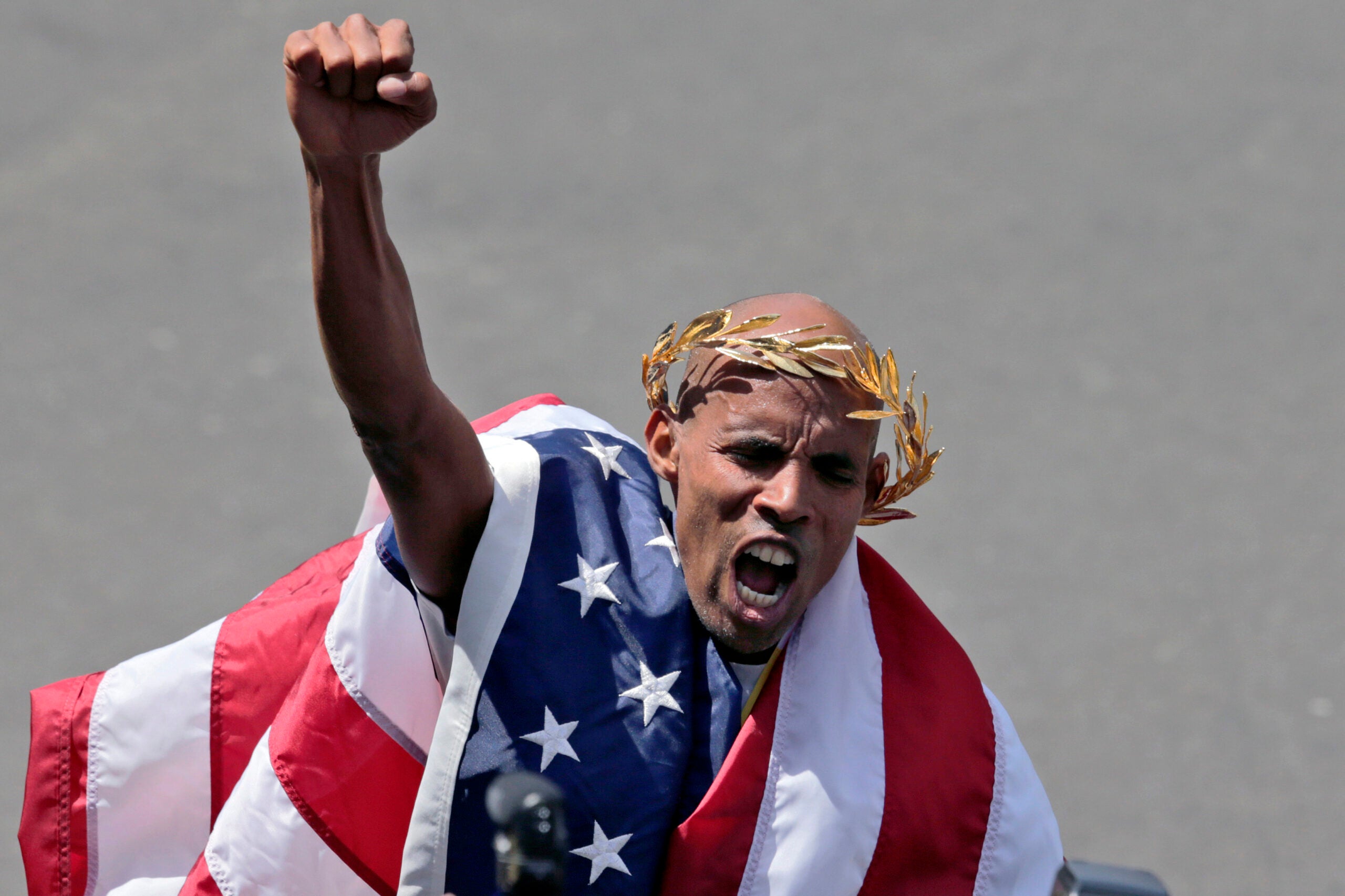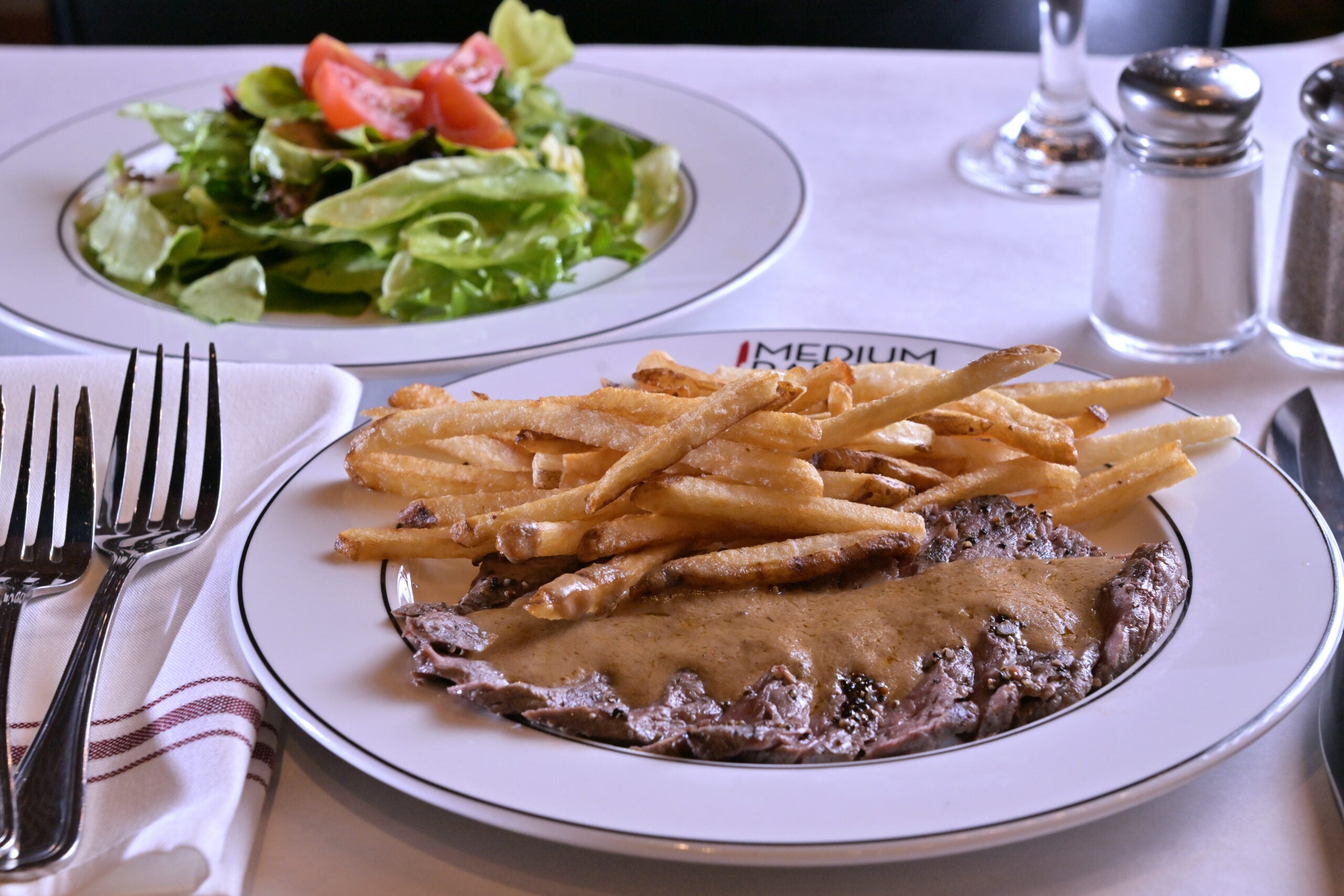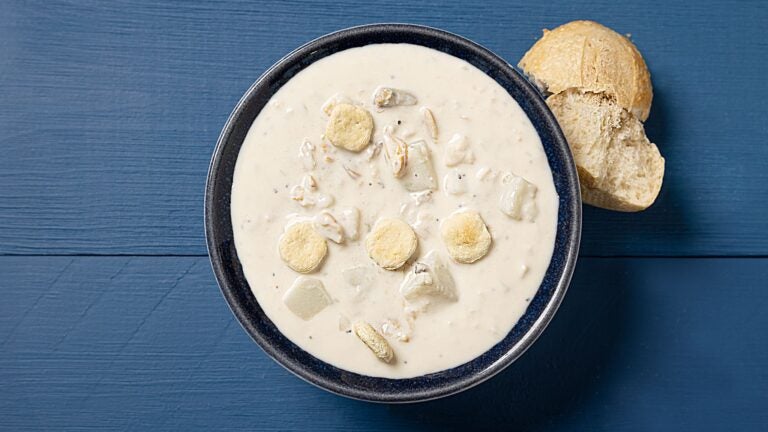Boston Marathon
“I actually just want a crispy pickle.”
When it comes to running the Boston Marathon, it’s a process that involves months of training before and weeks of recovery after. It’s not just about running either — food matters, too, at every step of the way, according to elite runners.
It may not surprise you to learn that elite runners, like Meb Keflezighi and Tristin Colley, have a regimented diet that plays a role in their training. Keflezighi is a Boston Marathon champion and retired professional runner, while 2:25 marathoner Colley is running her first Boston Marathon this year.
Boston.com wanted to get specifics from these elite runners about their prep diet, and how they let loose when the race is done.
What are some of your favorite foods to prep with before a marathon?
Meb Keflezighi: My go-to the night before is spaghetti with a meatball for protein. And salad and bread because you don’t know what’s available to you the next day. Try to delay it as long as you can, maybe 7:30 p.m. In the morning I have my homemade bread called himbasha or a bagel. Have one or two bagels next to your bed with almond butter and honey. If you get anxious and get up at 4 a.m., you can always eat. I’ll have a banana or electrolytes next to [my bed]. Then maybe at 6 a.m. I’ll try to have more food like bagels or oatmeal — easy carbohydrates.
Tristin Colley: I do go heavy on the carbs. Most people know that long-distance runners need carbs. Pre-run I like to do oatmeal with peanut butter, a lot of bananas, and bagels. I really like cinnamon raisin bagels with peanut butter, honey, and banana. It’s an easily digestible breakfast with carbs in it and just a little bit of protein. Definitely pizza and pasta. We eat a lot of rice-based dishes with some kind of protein. We end up eating Indian food a lot with rice, naan, and whatever meat. I like spicy stuff, but I won’t do super spicy the night before a big run just to keep the stomach calm.
What about the week leading up to the race?

Keflezighi: The week before, until Thursday, I try to have more protein. Then on Thursday I switch to carbohydrates. Like 60% protein, 40% carbohydrates before Thursday, and 80% carbohydrates and 20% protein after Thursday. You’ll get more energy. Before I go for a run, I’ll have half a bagel or himbasha with honey and almond butter while I stretch and get ready. Then I go for my serious workout, and I’ll have a shake and a banana to get me to the house. When I get home, I’ll have an omelet or scrambled eggs. Then dinner would be chicken or beef [with] pasta or rice. Having a salad on the side or broccoli or Brussels sprouts is pretty important. So it’s not too much pasta, pasta, pasta, alternate it with rice or potatoes. We always tell runners ‘don’t try something new on race day or the day before.’ Just because everybody does carbohydrate pasta the night before, don’t do that if the spice is not so friendly to you. Stick to what works from practice and training.

Colley: You want to start a few days out. About four days out we’ll start adding more carbohydrates to our diet. We’re not going overboard with it, but it’ll be at dinner instead of an extra side of broccoli, we’ll add a dinner roll. We also try to get in stuff that is a little bit more familiar. We’re not going to go out and get a super exotic dish that we’ve never tried.
What are some prep myths?
Colley: People have this idea that as a marathon runner, ‘you’re super healthy, so you must eat low fat and low sodium,’ which is definitely not true. You definitely want to add salt to your diet when you’re training for a marathon, and that’s dependent on your health status. But in general if you’re running a lot of miles, and especially if you live on the East Coast, it gets really humid sometimes so we’re sweating a lot, you definitely want to add salty foods to your diet. I eat food with a lot of salt. You want to get food with good fats in it. I don’t eat sugar all the time, but after a substantial meal, I don’t shy away from sugar if my body is craving chocolate or something sweet.
Keflezighi: A UCAN is what I use, a chocolate shake. At the last mile, I’m thinking about it. It’s waiting for me in my backpack when I finish. I’ll have a banana. Then treat yourself. Sometimes I’ll have Snickers. People have read that I have a sweet tooth, so at the end of the race when I’m coming they’ll have a king size [Snickers]. A couple of hours after that, you can have whatever.
Colley: Immediately after a lot of people, myself included, will sometimes experience gastrointestinal distress. During the marathon I try to take in simple sugars and gels. Immediately after I try to get in at least 20 to 30 grams of protein along with some carbohydrates. It’s whatever they have at the finish line, whether it’s a bag of potato chips or candy, and I make sure to get protein from a protein shake or a bar. Getting a meal in right after is super important for recovery.

What does recovery look like after a race?
Keflezighi: After the race you want to get as much protein for three days or so. You can eat sweets or croissants, but at the same time, those proteins are important. Steak is what I like. Also sometimes a hamburger and fries. If you’re in a rush, that’s what I go for. But if I’m going to enjoy a celebration, a big steak would be nice with a side of Brussels sprouts, asparagus, or mashed potatoes.
Colley: Immediately after I try to get in those calories, but then I take a few days to eat whatever I want. I don’t have any big restrictions besides limiting alcohol intake, and I try not to eat super processed foods. If I’m going to have desserts, I try to do homemade baked goods. It’s nice to do destination races and be able to try new foods, wake up late, maybe drink a coffee before breakfast, having mimosas in the morning. I love a good chocolate or almond croissant.
Any tips or myths for recovery?
Keflezighi: You’ve done the healthy part, getting to the starting line. It’s time to enjoy it. I never have beer or wine before my races, but I’ll try to have a glass of wine or beer after. Now having a beer immediately [after] is not the right thing because you can get lightheaded.
What’s your cheat or weird craving after the marathon or a run?
Keflezighi: Cheesecake with strawberries, though not so much anymore. Now I probably go for fries with a hamburger.
Colley: French fries with lots of salt and a crispy, citrusy beer. I also have a craving for pickles or pickle juice. My husband is a marathoner, too, and he will straight up drink pickle juice. You’d think that immediately after a run, you’d be like ‘I’m really thirsty. I want a Gatorade or a water.’ No, I actually just want a crispy pickle. And it’s kind of a Southern thing, but putting salt on watermelon is another craving I have.
Sign up for the latest Boston Marathon updates
👟 Everything you need to know about Marathon Monday, delivered to your inbox.


